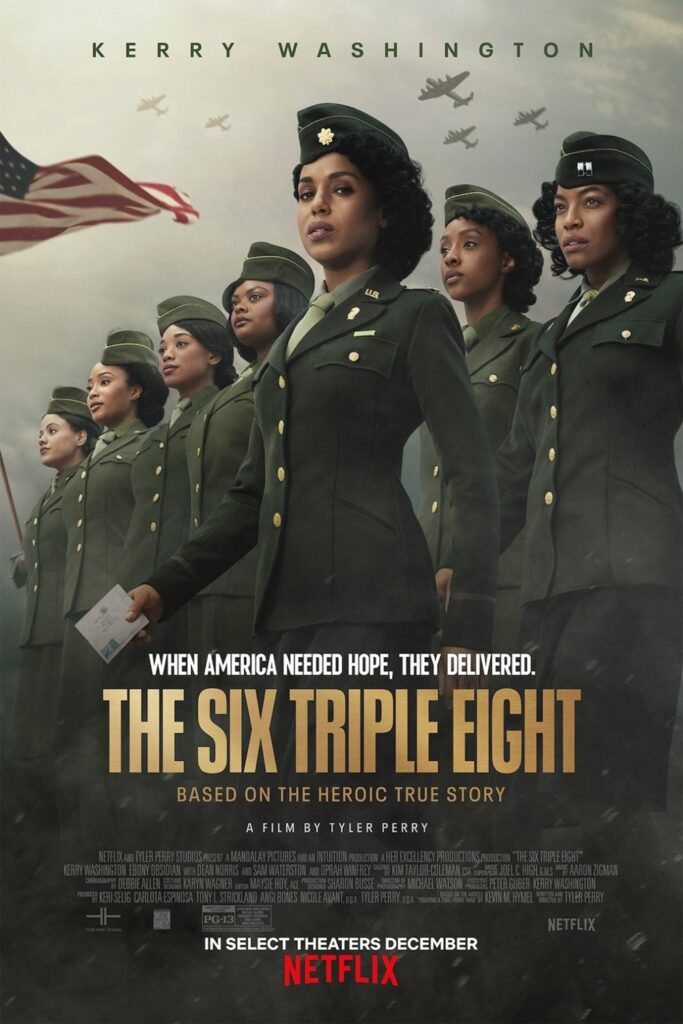“The Six Triple Eight,” directed by Tyler Perry and released in December 2024, is a historical drama that brings to light the remarkable story of the 6888th Central Postal Directory Battalion during World War II. This all-Black, all-female unit, comprising 855 women, was tasked with an immense challenge: clearing a three-year backlog of undelivered mail intended for American soldiers stationed in Europe. Their mission was not just about delivering letters; it was about restoring morale and hope to countless servicemen longing for news from home.
The narrative centers on Lena (Ebony Obsidian), a young African American woman from Philadelphia, who enlists in the Women’s Army Corps following the death of her fiancé, Abram (Gregg Sulkin), during the war. Driven by personal loss and a desire to contribute meaningfully, Lena becomes part of the 6888th Battalion. Under the leadership of Major Charity Adams (Kerry Washington), the unit faces the daunting task of organizing and delivering millions of pieces of mail that had accumulated over years. Their work is critical, as communication from loved ones serves as a lifeline for soldiers enduring the hardships of war.
Upon arrival in Europe, the women confront not only the logistical nightmare of sorting through warehouses filled with undelivered mail but also the pervasive racism and sexism of the era. They are met with skepticism from military superiors, including General Halt (Dean Norris), who doubts their capabilities and sets seemingly impossible deadlines, hoping to see them fail. Despite these obstacles, the 6888th Battalion implements an efficient system, working tirelessly in shifts around the clock. Their dedication leads to the successful sorting and delivery of over 17 million pieces of mail in just 90 days, far ahead of schedule.
The film delves into the personal stories of these women, highlighting their resilience and camaraderie. Lena’s journey is particularly poignant as she processes her grief and finds purpose within the battalion. Her interactions with fellow soldiers, such as Johnnie Mae Burton (Shanice Shantay), Bernice Baker (Kylie Jefferson), Dolores Washington (Sarah Jeffery), and Elaine White (Pepi Sonuga), showcase the diverse backgrounds and shared determination of the unit. The film also touches on Lena’s evolving relationship with Private Hugh Bell, illustrating the personal connections formed amidst the backdrop of war.
Despite their monumental achievements, the 6888th Battalion’s contributions were largely overlooked upon their return to the United States. The film addresses this historical oversight by depicting a ceremony overseen by Michelle Obama, honoring the women for their service and formally recognizing their impact decades later. This acknowledgment serves as a poignant reminder of the importance of inclusivity in historical narratives and the need to honor those who have been unjustly forgotten.
“The Six Triple Eight” is more than a war film; it is a tribute to the perseverance and courage of women who, despite facing discrimination and adversity, played a crucial role in maintaining the morale of American troops during World War II. Their story, once marginalized, is now given the recognition it deserves, serving as an inspiration and a testament to the unacknowledged contributions of Black women in history.

